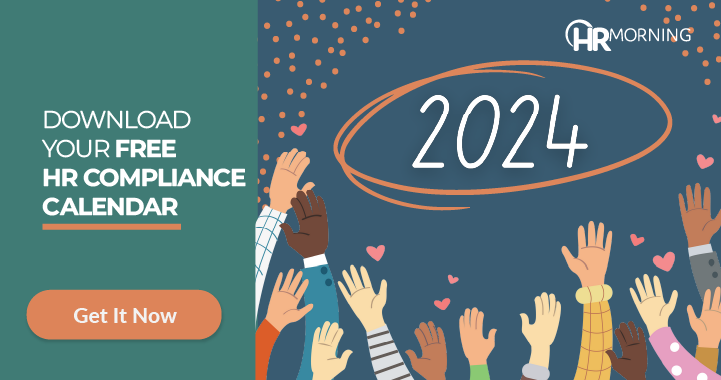Want to know how to avoid burnout? Implement a four-day workweek!
That’s what the 2021 Eagle Hill Consulting COVID-19 Workforce Burnout Survey found. The survey, conducted by Ipsos from Aug. 11-16, 2021, randomly sampled U.S. employees. The 1,010 respondents answered questions about burnout and retention.
If you’re thinking, “Yeah, right. Let me run that by my CEO,” while laughing uncontrollably, just hold on for a second.
In the time of the “Great Resignation,” firms must start thinking unconventionally. What if a forward-thinking company decided to offer a four-day workweek? How will you compete?
Think outside the box
We aren’t saying a four-day workweek is the answer. We’re saying, unless firms think out of the box as to what employees want, and then jump on the box and crush it, they won’t be able to compete. They’ll be short staffed and, more than likely, their employees will suffer burnout.
Already, more than half of the U.S. workforce suffers from burnout. And guess who’s feeling burnout the most?
It’s the younger workers (18 to 34), coming in at 62%. Next in line, employees 35 to 54 at 58%, and, finally, the 55-and-older group coming in at 33%.
And, more than one-third of the workforce said they plan to jump ship in the next 12 months.
Why is that?
Because the pandemic has caused them to re-evaluate their personal priorities, according to 51% of the polled workers.
“Both employers and employees are near the breaking point. Employers are struggling to find workers, and employees are stressed at work,” said Melissa Jezior, president and chief executive officer of Eagle Hill Consulting. “Unfortunately, the workforce situation likely will worsen before it gets better, with one-third of the workforce planning to leave their job soon. The so-called Great Resignation means that employers must start a Great Re-Evaluation, re-thinking everything from their culture to how work gets done.
“Employee burnout was simmering even before the pandemic, and now it’s boiled over for more than half of workers. It’s simply an unsustainable situation for a business when burnout is rising and the labor shortage continues. This means leaders must fully understand what is working and what isn’t for employees, and then collaborate on specific solutions that will work for an organization’s business strategy and the workforce,” Jezior explained. “It’s complicated because there isn’t a one-size-fits-all approach. For example, a four-day workweek may work well for some businesses, but it’s impossible for others.”
But it isn’t all doom and gloom!
Two-thirds of workers say they value their company more than ever. Now, it’s time to start digging and find out why that is. And when you find out, leverage that to retain your employees!
Reasons for burnout
Here’s some help from the survey. When asked why they felt burned out respondents said:
- workload (52%)
- lack of communication (44%)
- juggling work and personal lives (35%)
- time pressures (32%)
- unsure as to what’s expected of them (27%)
- lack of connection with colleagues (25%)
- performance expectations (24%)
- not feeling connected to the company vision, culture and values (23%), and
- not feeling empowered (22%).
So, when you look at those answers, you may think, “OK, if we cut people’s workloads, they’ll stay.” But who will do the work then? People’s workloads are what they are because most employers are understaffed. So how can you attract more people?
Survey your own workforce, and see what they say.
As for the survey, it offered the following insights into what employees want.
Reduce burnout
When asked what would reduce their burnout, 84% of respondents said a four-day workweek would be a big help! This response was highest among women and young workers. You’ve gotta admit, that’s a huge number!
The other responses were:
- decreased workload (82%)
- better health and wellness (78%)
- reduced administrative burdens (76%)
- additional on-site amenities (73%)
- remote work (67%), and
- the ability to work from multiple locations or relocate (58%).
Many of these are areas where Benefits pros can have a significant impact. Just goes to show how important benefits are to employees. It may be time to remind the higher ups just how important they are.


